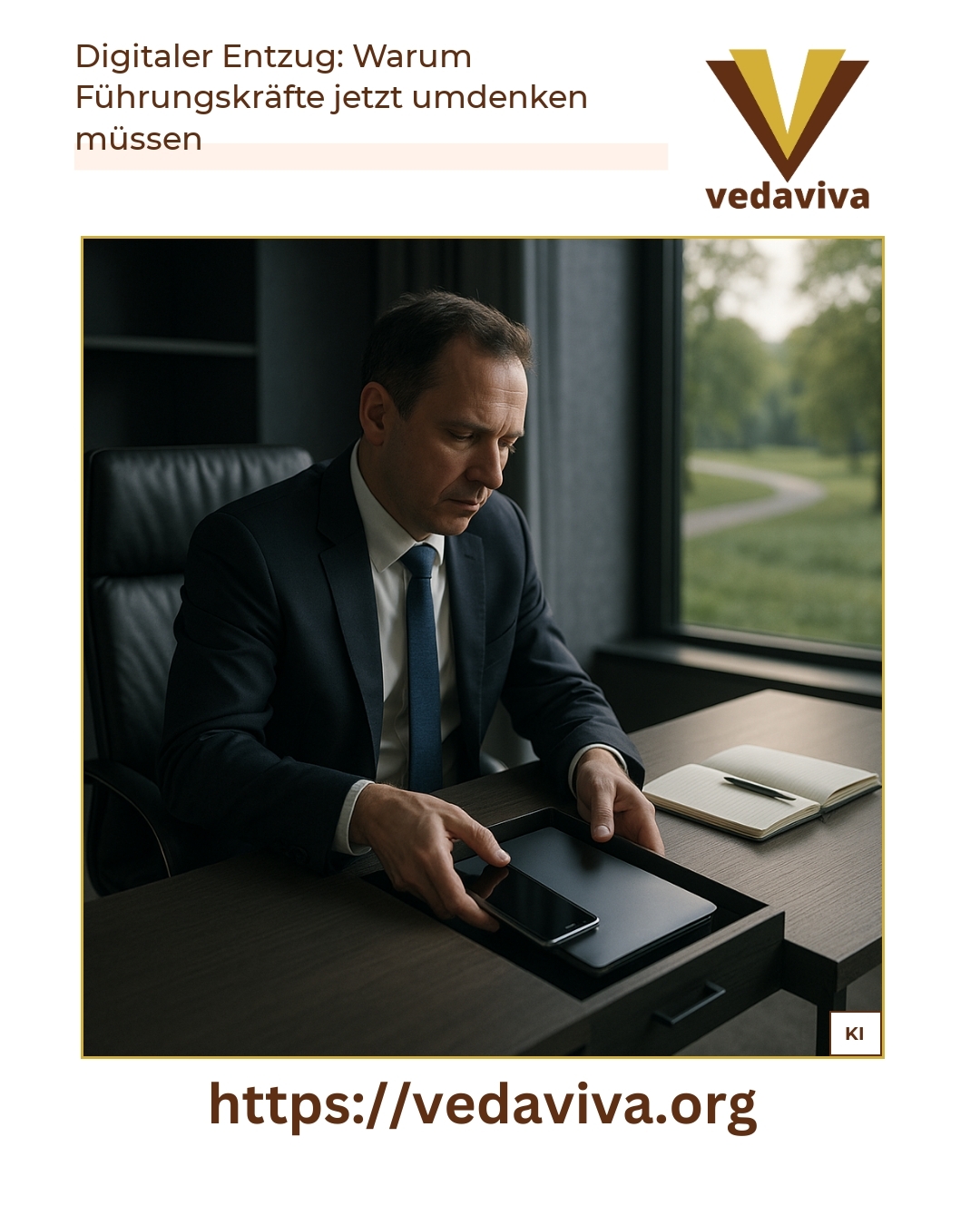Digital withdrawal as a new management task
Digital detox is becoming increasingly important for managers today. It describes the conscious renunciation or reduction of digital media and devices in order to counteract the constant sensory overload and permanent availability. Managers in particular are faced with the daily tension between high availability and the need to concentrate on essential tasks. In times of permanent digital presence, it is therefore more important than ever to find new ways to achieve a digital balance.
Why managers need digital detox
Managers often report digital stress caused by constant availability and an excess of information. Digital communication channels are indispensable, but the result is often distraction and excessive demands. Digital detox creates a space for focussing on the essentials again. This can increase productivity and improve the quality of decisions. A conscious digital time-out reduces stress and supports mental clarity.
At the same time, many managers find that constant digital presence blurs the distinction between work and private life. A targeted digital detox helps to set clear boundaries and thus promotes personal recovery and sustainable performance.
How digital withdrawal is implemented in practice
Digital withdrawal can be organised in various ways: For example, through time-limited offline periods or by setting up so-called „offline zones“ in the office. Deliberate phases without a smartphone or email access at the weekend also offer opportunities to gain new experiences with reduced digital use.
Another approach is to gradually reduce the use of certain applications, such as social media or messengers, which are often considered digital stress factors. In this way, managers develop more control over their digital use instead of letting it control them.
BEST PRACTICE at company XYZ (name changed due to NDA contract) A digital detox programme was introduced in a medium-sized IT company. Employees and managers agreed on a daily „mobile phone-free hour“ without any emails or messages. The result was a noticeable increase in concentration during this time and a more relaxed and agile working atmosphere. Managers reported a better focus on core tasks.
Digital balance through conscious breaks and rituals
Regular breaks without screen time are essential for digital detox. Managers who integrate such conscious interruptions into their daily routine promote their well-being and performance. Especially in meetings or strategic discussions, switching off devices can help to deepen communication and minimise disruptions.
BEST PRACTICE at ABC (name changed due to NDA contract) An international service provider has introduced „digital lunch breaks“. No electronic devices are allowed during these times. Managers and teams use these offline phases for personal dialogue, which strengthens the sense of togetherness and promotes new ideas. Participants also reported that they returned to their afternoon work more focussed.
Tips for managers: using digital withdrawal as an opportunity
Managers should follow a few basic rules to ensure that digital withdrawal is successful: They should clearly communicate when digital availability is expected and when it is not. In this way, they avoid uncertainty in the team and at the same time create space for focussed work.
The conscious control of digital use can be implemented, for example, with fixed email times or the use of tools that reduce distractions. It is also helpful to promote mindfulness and resilience as skills that improve self-regulation and stress management.
BEST PRACTICE at DEF (name changed due to NDA contract) There, managers were supported through coaching in order to shape digital habits in a more reflective way. Integrated workshops showed how digital media can be used in a targeted and non-impulsive manner. Many managers reported a more conscious way of working and reduced mental stress.
Setting digital boundaries: Indispensable for modern leadership
Digital withdrawal is not a complete renunciation, but a conscious approach to digital media. Managers can thus counteract constant availability and still act effectively. Consciously switching off promotes recovery and thus sustainable performance in everyday working life.
This creates valuable space for creativity, strategic thinking and a better work-life balance. Companies that offer their managers this opportunity are investing in the future of their organisation and the health of their management culture.
My analysis
Digital detox is a key topic for managers today. It supports them in regulating digital overload and focussing their attention on essential tasks. This can reduce stress levels and increase productivity. Numerous practical examples show that conscious offline phases and clear digital boundaries not only promote individual performance, but also strengthen team collaboration. Consciously managing digital media use is therefore an important step towards sustainable and healthy leadership.
Further links from the text above:
Digital withdrawal: Why managers are acting now [1]
Digital detox: the freedom of being offline [2]
Digital detox - how to detox digitally the right way [5]
Digital detox: Why more and more people are avoiding social media [7]
Legal notice: Coaching does not replace therapy. It serves personal development. I do not diagnose or promise a cure. My offer is for personal development and is not a substitute for medical, psychotherapeutic or curative treatment. Please consult a medically qualified specialist if you have any health complaints. The experiences described here are based on individual feedback from my clients. They are not a guarantee of success and do not replace medical or therapeutic counselling. For more information and if you have any questions, please contact Contact us on the topic or read further blog posts on the Topic here.













